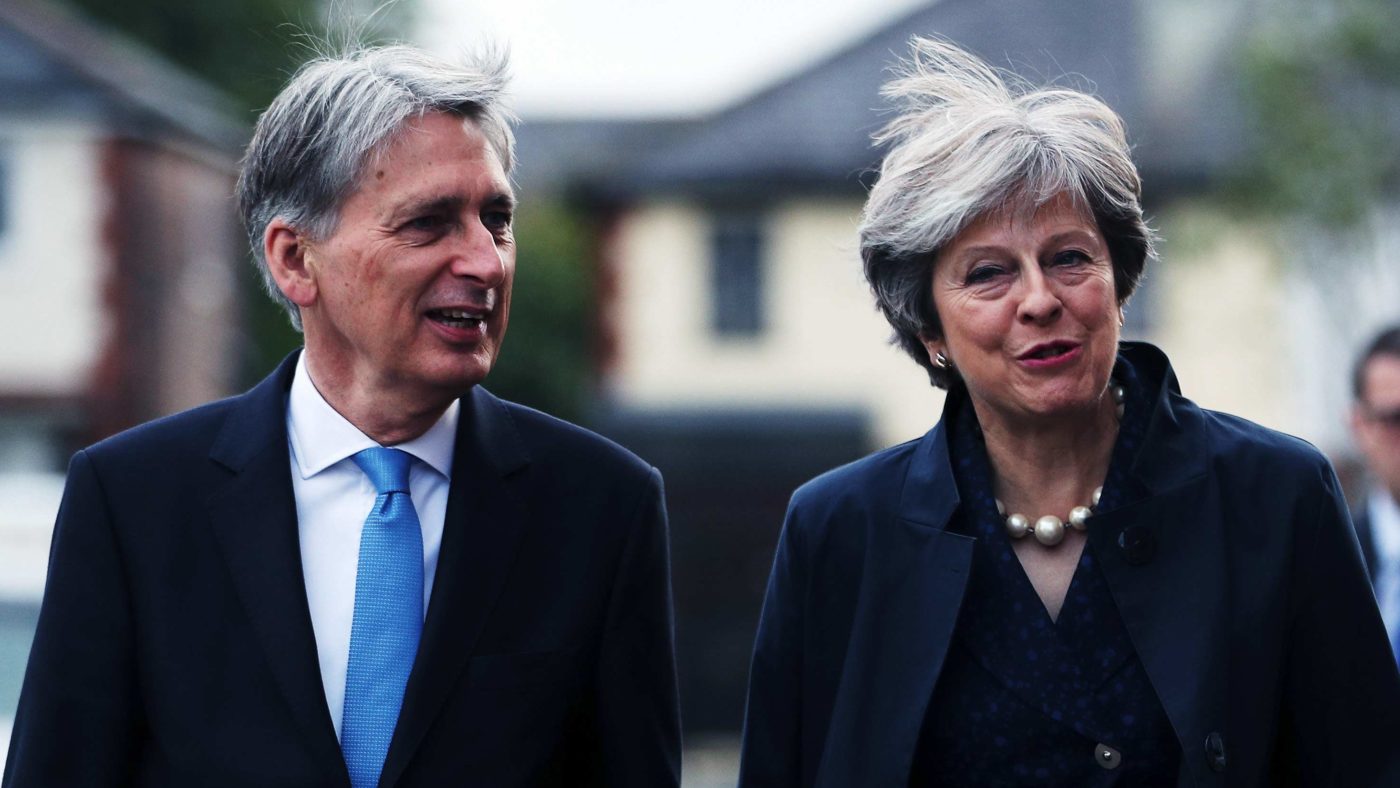Whisper it quietly, but our Prime Minister may, finally, be waking up to the biggest issue in contemporary politics. Whether it is her bleak warnings of Russian cyber-espionage or new support for driverless cars, Theresa May has barely said anything in the last week not somehow connected to the awesome, disruptive power of technology.
There is more to come too. Before the year is out her Government must deliver an industrial strategy that moves beyond a naive view of “tech” as an ordinary economic sector and appreciates it as the force that will imminently reshape our entire political economy. She also needs to find time to address this upheaval’s most pressing policy problem by responding to Matthew Taylor’s thoughtful review of modern working practices.
Yet before she wrestles with these totemic challenges she has a simpler and more immediate task. Because unless she finds a way of stopping a miserly Chancellor from stymieing her options on these two fronts, there is every chance her nascent technological agenda will emerge unto the world intellectually stillborn.
For a party historically suspicious of both state investment and intervention, industrial strategy presents an obvious political challenge. But when even Sajid Javid – a man who was once discomfited by the mere conjunction of the words “industrial” and “strategy” – is clamouring for a big fiscal stimulus, something is clearly stirring in the waters of Conservative economic orthodoxy. Javid is right too – Britain’s economy is crippled by private sector austerity and, in housing, we have a social crisis where capital investment enjoys a decent multiplier effect. Sometimes, the simplest solution really is the correct one.
Alas, the man in the Treasury remains the Treasury’s man: Philip Hammond has given zero indication that he will listen to the Communities Secretary and increase borrowing when he delivers his budget today. This should worry the Prime Minister. For, unless it is accompanied by a complementary relaxation of the Chancellor’s fiscal rules, her imminent modern industrial strategy may end up something of a damp squid. Make no mistake: this would be a huge own goal. There are powerful conglomeration effects in new tech industries and Britain has a real opportunity to lead the world in key sectors like artificial intelligence. The Prime Minister needs to be equipped with enough fiscal muscle if she is to seize it.
However, it is not just the Conservative Party’s damascene Keynesians who should fear Hammond’s parsimony. No, if newspaper reports are to be believed, the Chancellor has disappointment for low tax Thatcherites too, in the shape of more possible tax rises on self-employed private contractors.
To say this is a politically strange move puts it rather mildly: this is precisely the same political fire that torched Hammond’s last budget back in March. True, self-employment’s rising share of the labour market is beginning to stretch the tax base and there is always a need for simplification. Nevertheless, the Chancellor should stay his hand. After all, what is the point of setting up a broader review of modern work if you undermine attempts at systemic reform by rummaging for spare change behind the sofa at every budget?
The Prime Minster should ensure her Chancellor looks at the tax, benefits and employment status of Britain’s thriving self-employed workforce in the round. Most importantly, her Government should address the future of work question Taylor raised at a first principle level.
In America, the political philosopher Elizabeth Anderson has raised important questions about workplace democracy and individual control over the means of production. Her main target is American libertarianism’s curious amnesia when it comes to the “dictatorial firms” constraining freedom and behaving like “private governments”. But what she writes about the pre-industrial dream of “an economy of small proprietors” that “offers a plausible model of a free society of equals: each individual personally independent, none taking orders from anyone else” also deserves scrutiny in our era of economic upheaval.
Yes, firms remain the dominant mode of production and Anderson is right too that the industrial revolution destroyed this utopianism of Messrs. Smith and Paine. But as we grapple with our own industrial revolution it is not at all clear that this analysis will extend into the future indefinitely. Rising self-employment, given proper protections from exploitation, could yet represent a more autonomous future.
With December’s Brexit negotiations completing the trinity, the Prime Minister faces three moments this side of Christmas that could come to define what remains of her Premiership. But today she will find out whether or not they will survive her Chancellor’s fiscal conservatism.


